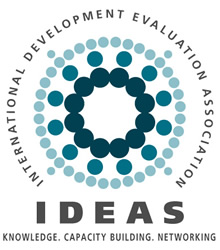As 2017 is in full swing, AEA would like to highlight that 2016 was an exceptional year for evaluation education – including many great speakers and presentations in our eStudy series. Based on feedback from participants and interested members, AEA decided to bring back some of the eStudy courses from 2016.
AEA is offering three individually packaged eStudy courses which include on-demand access to each recorded eStudy, all supporting educational material, and the presentation slide deck of each course. This offer is available until May 19, 2017.
Analyzing Evaluation Data in Excel
Presenter: Ann Emery
Ever feel like you’re swimming upstream in data? Need to make sense of spreadsheets, but not sure where to start? Have a gut feeling that you are not getting the most out of common software programs like Microsoft Excel? During this three-hour eStudy, Ann will guide you through the data analysis process, which involves: Merging multiple datasets together, assessing missing data and removing duplicate entries with conditional formatting, recoding and transforming variables, running descriptive statistics and frequencies, exploring preliminary patterns, and much more. Learn more about this package : http://www.eval.org/p/cm/ld/fid=544
Creating Surveys to Measure Performance and Assess Needs
Presenter: Michelle Kobayashi
Surveys for program evaluation, performance measurement, or needs assessment can provide excellent information for evaluators. However, developing effective surveys requires an eye for identifying unbiased question design and an awareness of how to use survey results. Neglecting these two aspects impacts the success of the survey. Through this four part eStudy, Michelle provides best practices for survey development. Learn more about this package: http://www.eval.org/p/cm/ld/fid=544
Evaluation-Driven Deep Whole-System Change
Presenters: E. Jane Davidson and Joanne McEachen
What does it take to design and lead deep whole-system change? Through this eStudy, learn about a powerful whole-system change framework built on evaluative thinking that can be used to design, drive, and track systemic change in virtually any context. Through a case example from the education sector, Jane and Joanne identify how user-friendly evaluative frameworks are used at every level of the system to diagnose root causes and design the right mix of approaches. Key tools will be discussed, including evaluative monitoring, which helps enable and drive the change, and rubric methodology to ensure that the important information is measurable, especially those more intangible outcomes. Learn more about this package: http://www.eval.org/p/cm/ld/fid=544
Don’t miss this valuable opportunity to learn from the best reviewed presenters in 2016! Visit the AEA website to learn more about these educational packages and to purchase the eStudy that best fits your needs. For questions, please contact Zachary Grays at info@eval.org.


